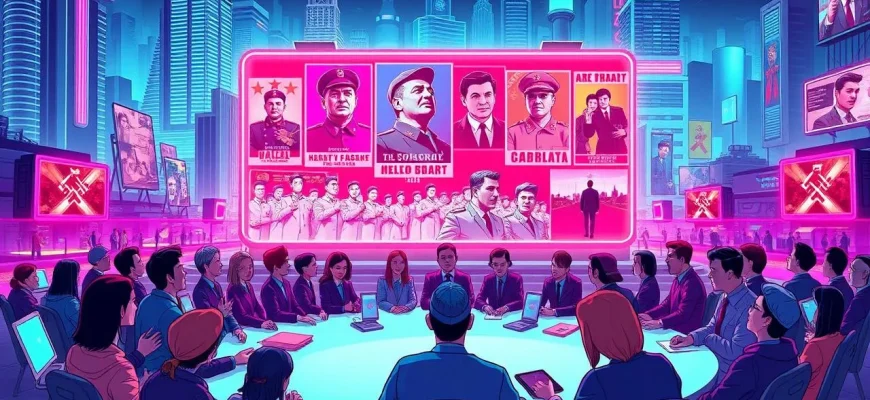This curated collection of Soviet films delves into the complex themes of power, authority, and political intrigue. Each film offers a unique perspective on how power is wielded, challenged, and perceived within the Soviet context, providing viewers with both historical insight and cinematic artistry. These films are not only a reflection of Soviet society but also resonate with universal themes of governance and control, making them valuable for anyone interested in political cinema or Soviet history.

The Ascent (1977)
Description: This war drama examines the moral and physical struggles of partisans during WWII, highlighting the power dynamics within resistance movements.
Fact: The film won the Golden Prize at the 10th Moscow International Film Festival.
 Watch Now
Watch Now
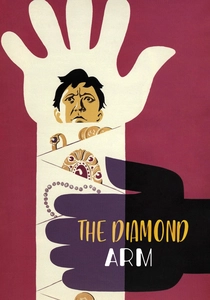
The Diamond Arm (1969)
Description: A comedy about a man unwittingly involved in a smuggling operation, showcasing the power of chance and the absurdity of criminal hierarchies.
Fact: The film was one of the highest-grossing Soviet films of all time.
 Watch Now
Watch Now
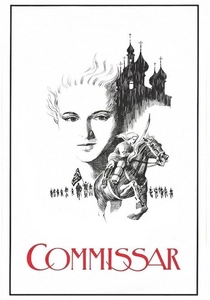
The Commissar (1967)
Description: This film explores the personal and political conflicts of a female commissar during the Russian Civil War, reflecting on the power of ideology versus human nature.
Fact: It was banned for 20 years due to its perceived anti-Soviet themes.
 Watch Now
Watch Now
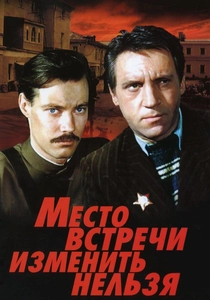
The Meeting Place Cannot Be Changed (1979)
Description: This crime drama series explores the power dynamics between law enforcement and criminals in post-war Moscow.
Fact: The series was so popular that it led to a revival of interest in detective stories in the USSR.
 30 Days Free
30 Days Free
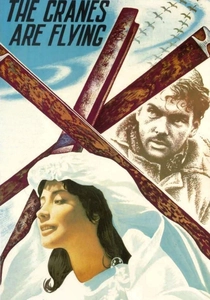
The Cranes Are Flying (1957)
Description: While primarily a love story set during WWII, it subtly critiques the power of war and its impact on personal lives.
Fact: It won the Palme d'Or at the Cannes Film Festival in
 30 Days Free
30 Days Free
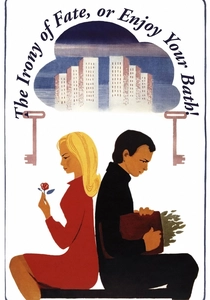
The Irony of Fate (1976)
Description: While not directly about political power, this comedy explores the bureaucratic power of the Soviet system through a series of humorous misunderstandings.
Fact: The film has become a New Year's tradition in Russia, often watched on New Year's Eve.
 30 Days Free
30 Days Free

The Fall of Berlin (1950)
Description: This epic film portrays the final days of World War II, focusing on the Soviet assault on Berlin and the power dynamics between Hitler, Stalin, and the German people.
Fact: The film was one of the most expensive Soviet productions at the time, with over 100,000 extras used in the battle scenes.
 30 Days Free
30 Days Free

The Chairman (1964)
Description: A satirical look at the power struggles within a collective farm, showcasing the absurdity of bureaucratic control and the quest for authority.
Fact: The film was banned for a time due to its critical portrayal of Soviet bureaucracy.
 30 Days Free
30 Days Free

The Optimistic Tragedy (1963)
Description: A revolutionary drama that portrays the clash between old and new power structures during the Russian Revolution.
Fact: The film was adapted from a play by Vsevolod Vishnevsky, known for his revolutionary themes.
 30 Days Free
30 Days Free

The Red Tent (1969)
Description: This film, while focusing on the Umberto Nobile's Arctic expedition, delves into themes of leadership, survival, and the power of human spirit.
Fact: It was a Soviet-Italian co-production, featuring international stars like Sean Connery.
 30 Days Free
30 Days Free

